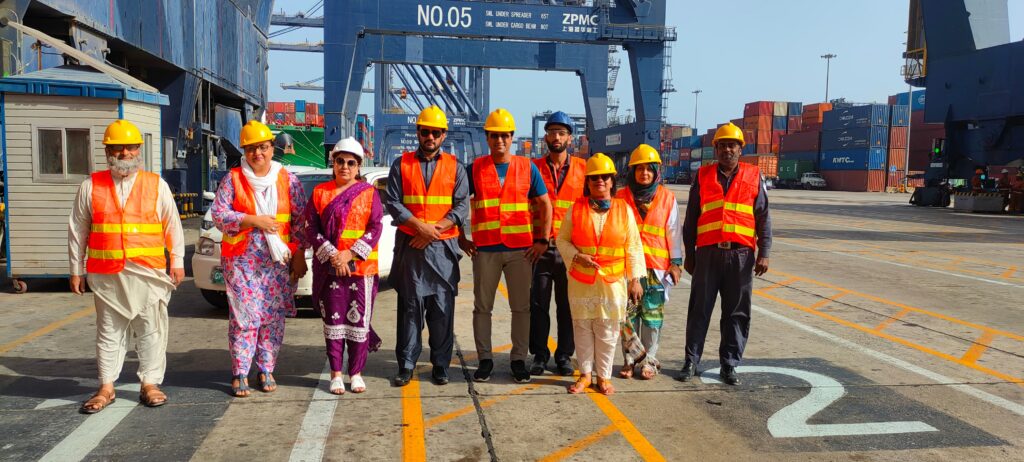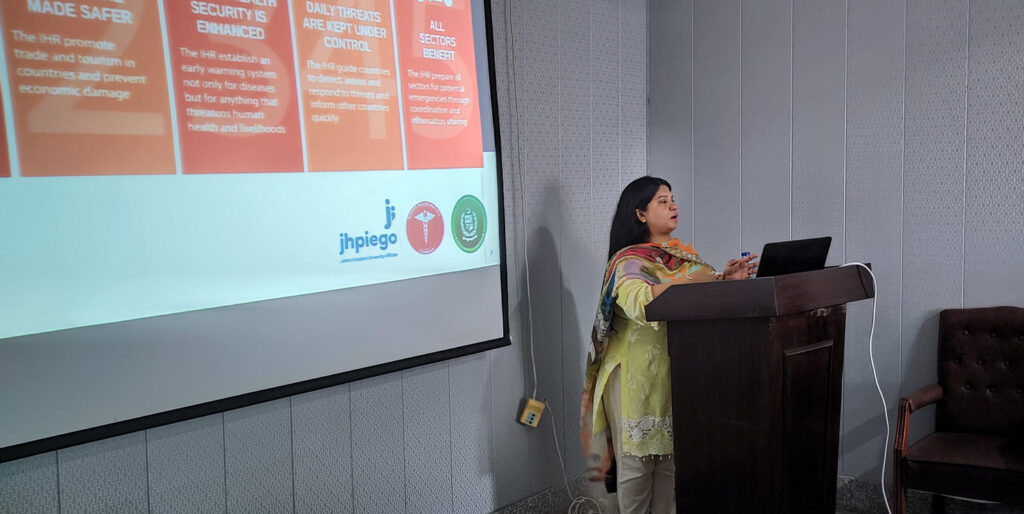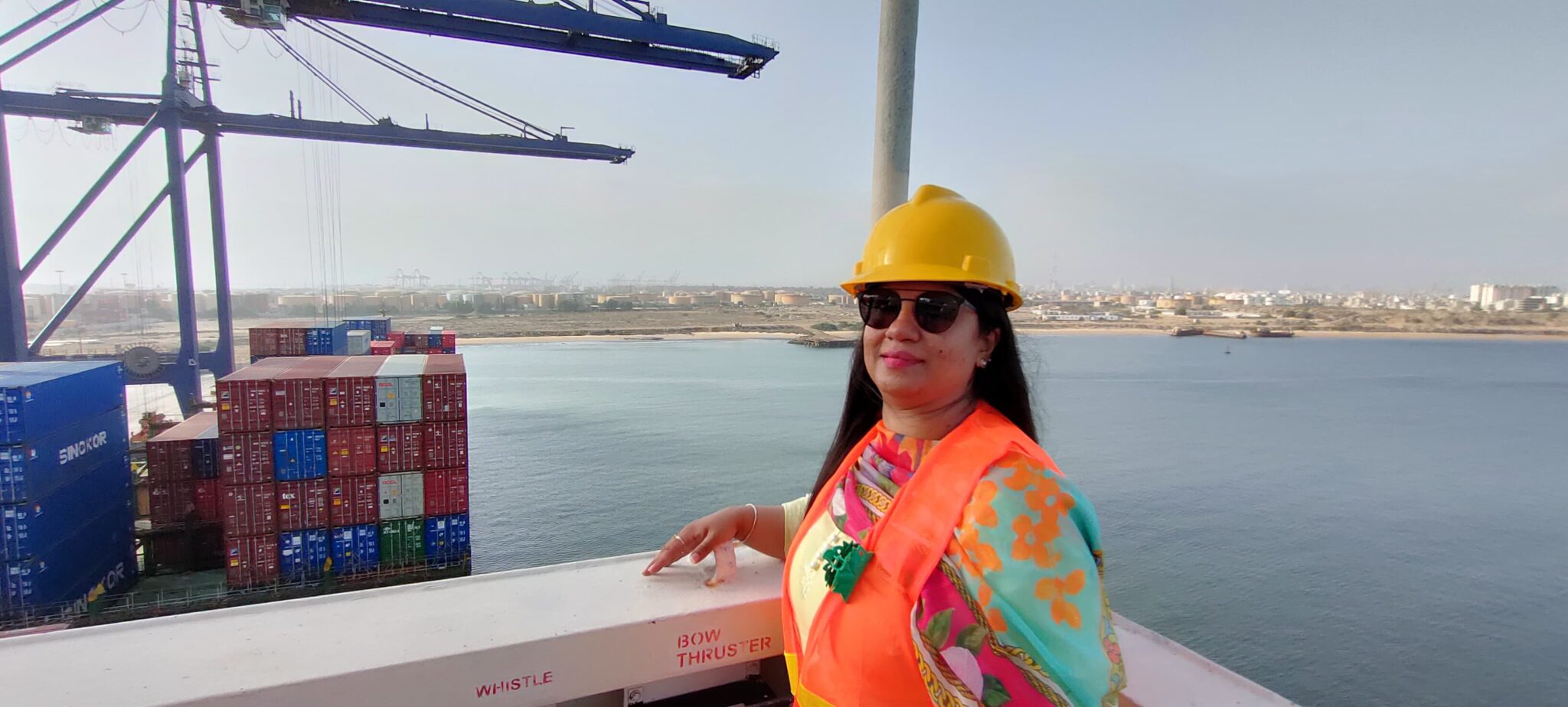Epidemiology studies the determinants, dynamics, and distribution of diseases in populations. Countries worldwide now focus on additional support to strengthen public health systems to detect and respond to outbreaks efficiently.
The COVID-19 pandemic has shown that field epidemiologists are essential for providing decision-makers with information to develop effective health interventions. The global health community voices the need for more investment in training and research in this area.
The Ministry of National Health Services Pakistan, in collaboration with the Center for Diseases Control U.S., executes and imparts a comprehensive epidemiology training program as an advanced two-year and a three-month frontline course with a focus on building a skilled workforce of epidemiologists and public health professionals, equipped to address the evolving health challenges for a resilient healthcare system in Pakistan.
Dr Nadia Noreen is a medical doctor and public health specialist with an MBBS, MPH, and MSc in Epidemiology, a graduate of the 2-year advanced postgraduate Pakistan Field Epidemiology and Laboratory Training Program (FELTP), and pursuing a Doctorate (PhD) in Public Health. She is also a member of the Training Programs in Field Epidemiology and Public Health Interventions Network (TEPHINET), the global network of field epidemiology training programs building a workforce to protect all people from public health threats.
Nadia currently works as the technical lead/focal person for International Health Regulations (IHR) for Border Health Services (BHS), a Department of the National Ministry of Health in Pakistan. BHS is responsible for implementing IHR and the cross-border spread of disease across the Points of Entry in Pakistan.
Seaports serve as vital hubs of trade, commerce, and international connectivity, so we must continue to provide our border health personnel with excellent training to have the necessary skills to conduct surveillance appropriately and manage risks effectively.
Her journey blends the power of resilience and the beauty of selfless love. Nadia is a born struggler, facing life’s challenges with steadfast determination, strength, and compassion. The loss of her father during the early days of medical school was undoubtedly a dismaying moment, but she made a conscious decision not to let adversity define her. Instead, Nadia emerged as a source of strength for her family, particularly for her beloved mother, who is her whole world.
Below are a few excerpts from her recent conversation with Scientia Pakistan’s Chief Editor, Saadeqa Khan.

Saadeqa: Field epidemiology is primarily considered a male-dominant field in Pakistan. How do you overcome obstacles and hurdles you face?
Dr Nadia: As a graduate of FELTP Pakistan, I proudly acknowledge the strengths, skills, and knowledge gained through the FELTP training without any gender discrimination. FELTP Pakistan provides equal career advancement opportunities based on merit rather than gender. In Pakistan, among limited available opportunities, FELTP training is a unique and excellent opportunity for persons interested in public health and epidemiology to continue their education and training.
Pakistan FETLP is modeled after the U.S. Epidemic Intelligence Service (EIS) and has a unique, applied training approach focusing on “learning by doing”. FETP trainees (also known as residents, fellows, or officers) spend 75-80% of their time maximizing hands-on training in the field and only a limited but quality time in the classroom.
Classroom time is spent learning the principles of epidemiology, disease surveillance, outbreak investigation, and biostatistics.
Field placements give fellows hands-on experience investigating outbreaks, establishing and evaluating disease surveillance systems, designing and conducting public health studies, and training other healthcare workers.
To date, TEPHINET, with the support of the U.S. Centers for Disease Control and Prevention (CDC), has trained more than 23,000 disease detectives to build disease outbreak and response capacity in more than 80 countries, including 286 field epidemiologists from 2-Year Advanced FETP and 338 from short course Frontline in Pakistan.
Working as a field epidemiologist in Pakistan has been a pleasant and positive experience. My journey as an epidemiologist involved in frontline response and emergency preparedness is a testament to my training, areas of expertise, and commitment to public health and saving lives. By excelling in this field, I have paved the way for many other females and inspired them to pursue careers in epidemiology and public health.
Saadeqa: Pakistan’s FELTP has made significant strides in promoting gender equity. Would you like to brief us about it? How did you contribute to their efforts?
Dr Nadia: FELTP Pakistan provides equal opportunities for training irrespective of gender based on a competitive selection screening process and accepts the most qualified candidates. Diversity inclusion is a priority in the selection of fellows and program officers.
Women and minority group representation in Pak-FELTP has been emphasized to ensure a workforce more closely resembles Pakistan’s population distribution. There are 42 female graduates (accounting for 20% of the total graduates), and nine female fellows are currently enrolled in the program.
Saadeqa: Where did you get the idea of the Training of Trainers (TOT) capacity-building workshop for Seaport workers? What were the objectives?
Dr. Nadia: The primary objective of the workshop was to equip participants with the skills, knowledge, strategies, and competencies required to serve as effective trainers of other seaport personnel, build workforce capacities, and improve surveillance systems at the Points of Entry in compliance with IHR to enhance global health security.
Seaports serve as vital hubs of trade, commerce, and international connectivity. However, they also present unique challenges regarding health security and preventing and managing potential outbreaks. The importance of surveillance at these entry points increased significantly during the COVID-19 pandemic due to the potential for rapid disease spread and increased risks associated with potential trade restrictions.
In my capacity as a subject matter expert and the technical lead/focal person for International Health Regulations (IHR) for Border Health Services (BHS), which is a Department of the National Ministry of Health in Pakistan, it is a routine part of my responsibilities to build workforce capacity and train BHS staff to improve surveillance and disease detection and response at Pakistan’s Points of Entry (POEs).
I have designed several capacity-building sessions in the past at various POEs with the support of partner organizations to strengthen core capacities at POEs and improve emergency response. In the spirit of progress and innovation, these initial pilot TOT served as bridges connecting potential to proficiency. I intend to extend this learning experience to all Points of Entry (POEs) for workforce development.
“My journey as an epidemiologist involved in frontline response and emergency preparedness is a testament to my training, areas of expertise, and commitment to public health and saving lives.” ~ Dr Nadia Jamil Qureshi
Saadeqa: What was the experience of these workshops, and what are the outcomes?
Dr Nadia: Conducting TOT workshops to strengthen core disease detection and response capacities at seaports has been a wonderful experience and has tremendously impacted how we conduct surveillance and manage risks at points of entry in Pakistan.
Seaports serve as vital hubs of trade, commerce, and international connectivity, so we must continue to provide our border health personnel with excellent training to have the necessary skills to conduct surveillance appropriately and manage risks effectively.
The target audience for these TOT sessions includes staff from different sectors working in coordination at all the seaports. The TOT workshop served as a platform for exchanging knowledge and best practices and allowed participants to gain valuable insights and learn from each other’s experiences.
The skills gained from this pilot workshop will help to accelerate emergency response and nurture a culture of continuous improvement that will safeguard public health within Pakistan’s seaports and contribute to a safer, healthier global community.
The most wonderful outcome of these workshops is the sense of empowerment, ownership, belonging, and confidence instilled in the participants and the belief that together we can make a difference in health outcomes.
The COVID-19 pandemic has been a test case for many sectors, particularly the public health sector, and increased the need for trained and skilled human resources to manage the pandemic on the frontlines.
Saadeqa: SEAPORT entry points in Pakistan are mostly bypassed regarding healthcare facilities. How did you train seaport workers and health personnel to manage an outbreak response at seaports and ship sanitation operations?
Dr Nadia: Cross-border health threats represent a considerable challenge to both developed and underdeveloped countries. Therefore, the practical application of health measures at points of entry is essential to prevent the spread of disease across borders.
Pakistan has designated and maintained core capacities at 18 Points of Entry. The capacity required at all times for the point of entry is developed but not sustained due to logistics and human resource constraints.
Pakistan has three international seaports, namely the Port of Karachi, Bin Qasim, and Gawadar, which are the designated seaports as per the IHR list of authorized ports to issue Ship Sanitation Certificates along with developed referral systems/ linkages with tertiary care facilities.
The training content for the workshops was crafted and adopted from the latest updated guidelines of WHO and the U.S. Centers for Disease Control and Prevention (CDC) with detailed, comprehensive learning of IHR, Global Health Security (GHS), and ship sanitation adopted from Guide to Ship Sanitation Third Edition by WHO, CDC Vessel sanitation programme, CDC maritime guidance, Vector and reservoir control program, public health events on board ships management handbook by WHO.
My writing and computer skills acquired through FELTP training enabled me to develop comprehensive training materials like presentations, case studies, and flip charts.
Saadeqa: I read a fascinating story of two female crane operators working at Karachi Sea Port. You visited there: are you pleased with the working environment there for females?
Dr Nadia: Seaports are hubs of ceaseless activity, diversity, and ingenuity. My visits to seaports have always been enjoyable as the work environment for females is very supportive. For example, a female medical officer has been serving as a port Health officer for over the years. Likewise, my experience at seaports in a leadership role for over three years has been enriching. An environment emphasizing skills, knowledge, and collaboration supports it.
This environment keeps us focused on the work rather than gender and creates a brighter, healthier, safer, and more prosperous future for all of us on the frontline of public health.
Saadeqa: What strategies should we implement to increase gender inequity in such places?
Dr Nadia: The working environment for females in all places and walks of life must be safe, inclusive, and free from discrimination. Employers and organizations must ensure that female workers have equal opportunities, access to training and career development, and are treated with respect and fairness.
Promoting gender diversity in the workplace benefits individual women and contributes to the overall success and innovation of organizations. Encouraging more women to pursue careers in non-traditional fields is a step in the right direction towards achieving gender equality and creating inclusive work environments.

Saadeqa: Is there anything else of public interest I missed that you can add about your or FELTP’s efforts to promote gender and health equity in Pakistan?
Dr. Nadia: First, I want to express my profound acknowledgement of my mother’s selflessness, dedication, and support that have shaped my life. I want to pay a heartfelt tribute to the sacrifices she has made, the encouragement she has provided, and the prayers she has offered for my well-being and success.
It’s a powerful testament to the importance of family and parents nurturing their children’s dreams and aspirations. It’s a reminder that behind every success story is often the enduring dedication, motivation, and prayers of a loving parent. My father in heaven and my mother in my home are my real heroes.
I would like to take this opportunity to sincerely acknowledge and express my heartfelt gratitude to the exceptional teachers and mentors at FELTP who have played a pivotal role in shaping my drive for continuous learning and skill development.
I am also deeply appreciative and pay profound gratitude to my competent authorities at the National Health Ministry and headquarters, whose commitment to fostering an enabling and inclusive environment has been instrumental in my professional journey.
Their dedication to creating a workspace where everyone, regardless of background or identity, can thrive, contribute, and flourish is commendable. Within this nurturing environment, I have found the inspiration to excel and support others in reaching new heights.
As I move forward, I carry the invaluable lessons, mentorship, and supportive framework my teachers, mentors, and competent authorities provide. With their continued guidance and the foundation they have laid, I am empowered to embrace challenges and opportunities and contribute positively to my field and beyond.
A profound “take-home” lesson I have learned throughout these years of continuous response and engagement is that health security knows no boundaries, and the collaborative strength of diverse voices leads us to a safer, healthier world.
Acknowledgement:
The said piece of TOT was done with the support of Jhpiego- an affiliate of John Hopkins University, under the patronage of the Ministry of National Health Services, Regulations & Coordinations.
Also, Read: Sania Alam— The Super Learning Queen

Saadeqa Khan is the founder, CEO, & Editor-in-Chief of Scientia Pakistan. She’s a member of the Oxford Climate Journalism Network (Second Cohort) and NASW. Saadeqa is a fellow of NPF Washington, The Falling Walls Foundation, and the Science Journalism Forum. Saadeqa has won several international journalism grants and awards for her reports.

